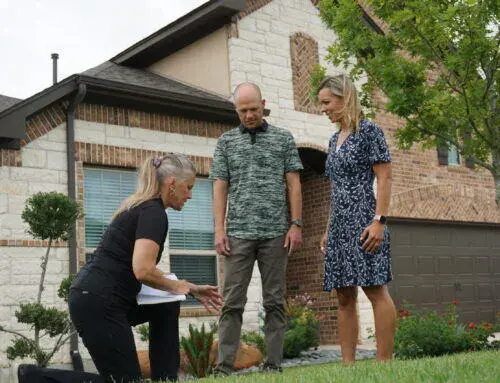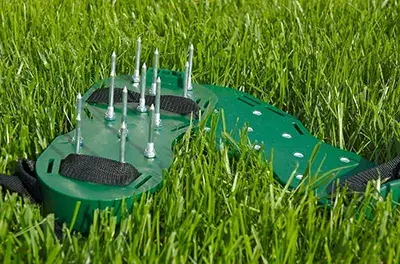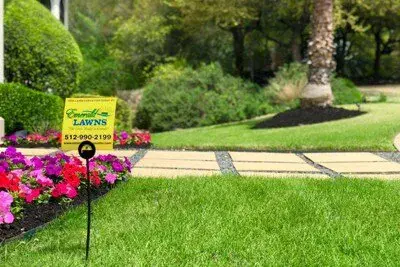 Bermuda Grass is considered the “South’s Grass” due to it’s texture and color. This perennial grass grows in tropical, sub-tropical and the transitional zone. It is one of the most sun loving warm season lawn, sports field, and pasture grasses. Improved varieties with better cold tolerance than basic common Bermuda types should be grown in areas such as Oklahoma, North Texas, Arkansas, Tennessee, and Virginia. These hybrids will turn brown at the first dip in temperature but will generally retain a beautiful green color all year round. Bermuda grass can be grown on low to high maintenance schedules depending upon the usage and lawns planted with Bermuda can attain full lawn coverage in one year, making it a popular choice among Texas homeowners.
Bermuda Grass is considered the “South’s Grass” due to it’s texture and color. This perennial grass grows in tropical, sub-tropical and the transitional zone. It is one of the most sun loving warm season lawn, sports field, and pasture grasses. Improved varieties with better cold tolerance than basic common Bermuda types should be grown in areas such as Oklahoma, North Texas, Arkansas, Tennessee, and Virginia. These hybrids will turn brown at the first dip in temperature but will generally retain a beautiful green color all year round. Bermuda grass can be grown on low to high maintenance schedules depending upon the usage and lawns planted with Bermuda can attain full lawn coverage in one year, making it a popular choice among Texas homeowners.
Bermuda Characteristics
Bermuda blades are grey-green in color and are short, usually 0.79 to 5.9 inches long with rough edges. The stems are slightly flattened, often tinged purple in color. Bermuda grass has a deep root system, that can grow to over 2 meters deep, though most of the root mass is less than 60 cm under the surface. This comes in handy in areas that go through drought such as central Texas and Austin. Bermuda grass growth is promoted by full sun and retarded by full shade such as areas close to tree trunks.
Bermuda Maintenance
Bermuda germinates quickly from seed, covers quickly and grows in a variety of soils. This grass prefers well draining soils whether acidic or alkaline and tolerates soils from sandy to clay. Although Bermuda grass is drought tolerant it does respond well to watering and fertilization if the desired density is not sufficient. Over watering can bring about fungus and invitations to insects. Avoiding mowing Bermuda grass below ½” or you could damage the plant. Removing more than this can cause scalping and may take a long time to recover, and makes the grass more susceptible to stress and further damage.
Bermuda Disease and Pests
Crickets, grasshoppers, beetles, worms, and a variety of other insects will take up residence in nice, thick Bermuda grass lawn. Contact your local turf care professionals for insect control. Common fungal diseases include dollar spot, brown patch, spring dead spot and Pythium. Fungicidal sprays can be used to prevent these fungal diseases, as well as treat them. One of the best qualities of Bermuda grass is the degree of growth that can be achieved through good management practices. Bermuda grass can be an ideal grass for certain areas but once it starts growing in areas where other species are growing, it’s aggressive nature will over-run other habitats. Known as one of the most persistent and aggressive grasses grown, it is very hard to kill Bermuda after establishment. Repeated tiling and removal roots is usually required to kill Bermuda grass.
Feel free to reach out to our lawn care experts at Emerald Lawns Austin if you have any questions about what kind of grass you should install on your lawn. Call our lawn care company at (512) 990-2199, or contact us online for information.




